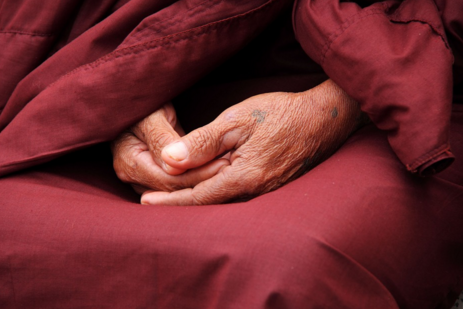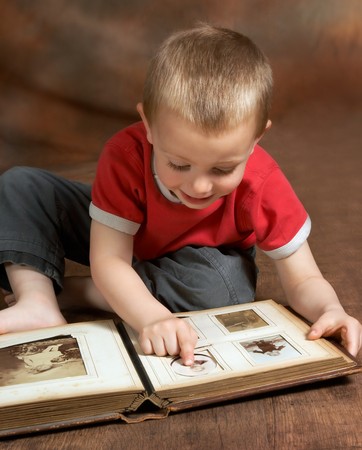A new scientific study found that our DNA transmits information of experiences of fear and stress from generation to generation. We are closer to understanding how the genetic memory of our ancestors survives through us. Let’s see how they did it:
Researchers at Emory Medical University in Atlanta trained mice to be afraid of the smell of a blossoming cherry tree using electrical shocks preventing them from breeding during that training period. Once they grew up, their offspring showed the same fear responses to cherry blossom, very different reactions to other types of odors and all of this without having experienced them previously. Next generations showed the same behavior. This behavior was maintained even in cases of offspring through artificial insemination.
The researchers discovered structural changes in the areas that detect the odor both in the brains of trained mice and in the brains of their offspring. The DNA of the animals also suffered chemical changes known as “epigenetic methylation” in the gene responsible for detecting odors. This suggests that experience, somehow moves from the brain to the genome, thus allowing it to pass to later generations.

Researchers now hope to carry out more studies to understand how information gets stored in DNA and also more studies to find out if what happens among mice can be transferred to humans. If this is the case, we might be talking about explaining many of the “irrational” responses of humans such as phobias.
According to the Telegraph, Dr. Brian Dias of Emory University’s psychiatry department said, “From a translational perspective, our results allow us to appreciate how the experiences of a parent, before even conceiving offspring, markedly influence both structure and function in the nervous system of subsequent generations “
The study shows important consequences in the understanding and treatment of fears and phobias, since their origin can be located even beyond the stage of pregnancy and although many therapists are already working with this, the fact that there are scientific studies as a framework lowers it from the “paranormal” to the “normalized” research and that is always an important endorsement.
What is Genetic Memory?
With vast concepts and still not completely studied, and even controversial among the same experts, genetic memory is considered today an incipient field of study that can help to understand a variety of processes in biology and psychology by which the genetic material confers a memory of the history of an individual or a species. It can refer to the genetic code of DNA, epigenetic changes of the genetic material or the inheritance of instincts.
Although its importance is increasingly prominent, the truth is that there is not yet a statement about its true utility that has been scientifically proven. However, it is also true that, within what has been most studied, we find the fact that basic emotions are apparently in the genetic bundle, as protection mechanisms, these emotions are fear, anger, joy (not happiness since that is a mental constructive process), and sadness. This can be easily seen in animals.
According to the psychologist Paul Tellería, in this field, at some point it was believed that the influence of the genetic in the behavior was high. “To date there is evidence and biological correlates that could be said to be demonstrated in: Schizophrenia, psychosis, dementia, alcoholism and / or substance abuse.” However, in relation to other disorders (field of neurosis) the evidence is poor. Although there may be a predispose, for example: Anxious mother ->, anxious child. “But the environment always plays an important role, that is learning.”
According to Telleria, it is important to distinguish between two concepts:
The genetic/biological predisposition: That which is in biological memory. The genetic aspect is what is established in the DNA plane. At the moment there is no certain evidence to confirm the existence of a gene that causes madness.
The environmental determinant: Those characteristics of the medium that, in the case of a biophysical determinant, could detonate a condition. Example: Alcoholic father -> son raised in social surroundings that lead him to be an alcoholic.
Genetic Memory and Nurture
This leads to the old debate started by the Greeks about what aspects of personality one inherits and what aspects one learns. In sum, the biological is predisposing, the environment is determinant.
“I would personally encourage myself to conclude that while there may be a biological predisposition (I would not say genetic memory) the environment predisposes behavior. One learns to behave and environmental conditions (family, society) can activate something biophysically determined. I think it would be possible to talk about genetics in cases of dementia or schizophrenia” says Tellería.

In biology, memory occurs if the state of a biological system depends on its past history in addition to the present conditions. If this memory is recorded in genetic material and inheritance is established through cell division (mitosis or meiosis), it is considered genetic memory.
In population genetics and evolution, genetic memory represents the recorded history of adaptive changes in a species. The selection of organisms that have genetic codes for the production of better-adapted proteins results in the evolution of the species. An example of this genetic memory is the innate immune response that represents a survival of the viral pathogens with which we face during the evolutionary history of the species. The innate immune response is present from birth and does not require the immune system to learn to recognize certain antigens.
“In psychology, genetic memory is a memory present at birth that exists in the absence of sensory experience, and which is incorporated into the genome over long periods of time. The concept of genetic memory has been collected, expanded and used in numerous works of literature and audiovisual sci-fi. It presupposes that individuals could not only acquire or enhance physical characters during their life and pass them onto their offspring but also that the personality and experiences of the individual could be incorporated into their genetic code. In this way, an individual would carry the memories and personalities of his ancestors, and these could be recovered, either by an unconscious urgency or by the use of appropriate technology or training. This concept is used as part of the main plot of the video game Assassin’s Creed, and as part of the science fiction saga Dune.
The precepts of National Socialism relied heavily on genetics to support the idea of a pure race. For me, all those who take sides blindly to genetics are those who will sooner or later defend racism. I would encourage you to state that genetic predisposition in behavioral issues has a burden lower than 25%. Another thing is to talk about diseases, physical features, etc.” concludes the psychologist.
Background of Genetic Memory
In 1910, Carl Jung used the term “collective unconscious” to define a broader concept of inherited traits, intuitions, and collective “wisdom” of the past.
In his 1998 book, “The Past of the Mind,” Michael Gazzaniga wrote: “The baby does not learn trigonometry, but knows it; does not learn how to distinguish figure from ground, but knows it; does not need to learn, but knows, that when one object with mass hits another, it will move the object … The vast human cerebral cortex is chock full of specialized systems ready, willing and able to be used for specific tasks. Moreover, the brain is built under tight genetic control … As soon as the brain is built, it starts to express what it knows, what it comes with from the factory.”
Using a computer metaphor, we could say that the brain comes “loaded” with preinstalled software.
Genetic Memory and Reincarnation
Text by Daniel MacLean
How can an individual develop despite this genetic memory in case it is negative?

Negative experiences, viewed from a broad point of view, are actually challenges that we have chosen at very deep levels of our being to explore certain existential themes, to develop our hidden abilities, to have fun, to have adventures, to evolve. So not only that the individual can develop itself despite these negative memories but to develop from and against the backdrop of so-called negative experiences. This is why in the Hindu mystic the lotus flower is such a suggestive symbol. The beautiful and fragrant lotus flower appears in the stagnant waters. That we are, lotus flowers that stand out and shine from the stagnant waters of negative genetic memory. This of course, when we stop playing the victim.
Does it have something to do with what is called karma?
The word karma is very loaded with the morality of reward and punishment. It is a difficult concept to understand without suggesting an expiatory, sobering, corrective, penitentiary idea. If we take it as the mere consequences that we have set in motion through our actions, intentions, motivations, expectations, then yes, it has to do with genetic memory and its repetitive patterns.
Would you explain reincarnation in any way?
One of the key ideas to understand the concept of genetic memory is that the experiences, learnings, and themes experienced by the species, by races, peoples, families, etc., contribute and nourish this network of memories. It is a cumulative process over countless generations. So let’s say reincarnation is a fact and you are a new soul, your first life. Still, you are connected with certain areas of that vast memory and you are pulling information that does not come from your own experience in this nor past lives, that is the interesting thing about this concept. Not only do you access the memories of your own reincarnation memory, but also that of the whole group. Then the idea of reincarnation, however true it may be, is not required to explain the concept of genetic memory.
Can we break that wheel and how?
You mean the repetitions of negative memories that, so to speak, have us trapped. What traps us is not the memory itself but not knowing that we have the power to reconfigure those memories, to re-invent ourselves. Secondly, we are trapped by the intention, the decision (for unconscious reasons) of engaging with painful and conflicting stories. A mistake we make more than three times, as they say, is already a decision. It sounds strange since we are accustomed to thinking that we are powerless victims of circumstances, and not their authors. Authors of the circumstances. It sounds very weird. It is one of the most revolutionary and explosive ideas, of course, also uncomfortable, which are beginning to emerge and gradually become entrenched in our way of thinking about our human condition.
Is this something that I can change and transform from my own experience?
Not if it means that we do it without external help. There are things we cannot see for ourselves and we need other people to show us, to support us, to guide us, to help us when necessary. In terms of changing and transforming our lives despite those memories, of course. We are those beings who create the experience that we are living. But we are the ones who create it, even if we do not realize it.






